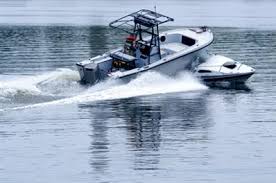Maritime or Admiralty Law
Thursday, June 28th, 2018 Maritime law, better known as Admiralty law, is a body of law concerning behaviors and activities on the sea. Admiralty law governs the interactions of those who conduct business on the water. Primarily the focus is on international waters, but laws are applied to waters in and around each country.
Maritime law, better known as Admiralty law, is a body of law concerning behaviors and activities on the sea. Admiralty law governs the interactions of those who conduct business on the water. Primarily the focus is on international waters, but laws are applied to waters in and around each country.
Americans are often unaware that when they board a cruise ship there are admiralty laws that apply to them. These laws affect everyone that travels on the high seas. They regulate many situations including commerce, navigation, lost cargo, leisure travel and the interactions between seamen and their employers.
Admiralty law is a mix of international agreements and domestic laws. In the United States, this law mostly falls under the federal law. There are instances where it could go to state court, such as personal injury cases that occur on the seas.
There are several rules and principles that apply to actives on the high seas such as maintenance and care, duties to passengers, liens and mortgages, salvage and treasure, and lifesaving on the high seas. Maintenance and care refers to a situation where a seaman is in service to an employer and the right they have to appropriate injury care. A seaman has the right to treatment until their journey ends. Duties to passengers include passengers on a ship that have the right to reasonable care while on the ship. When a contract disagreement arises involving companies that do business on international water they must have a forum to resolve the issue, which is the liens and mortgages principle. The salvage and treasure principle is when a party recovers lost treasure and other lost cargo, and a question arises as to how to fairly divide the recovered possessions. Lastly, lifesaving on the high seas refers to there being no salvage for saving a life. Seamen are expected to do their absolute best to save the life of anyone in danger on the high seas.
The U.S. Coast Guard enforces the admiralty laws within their jurisdiction. In the United States, the Coast Guard has jurisdiction up to 12 miles from our coast, and another limited jurisdiction for 12 miles beyond the initial 12 miles.
Remember when you’re out on the boat for the July 4th holiday that Admiralty laws apply to you and everyone else who finds themselves at sea. Should you or someone you know becomes injured on the water, call the professionals at Collins Law Firm at 910-793-9000 for a confidential consultation.
By Haley Rouse, Legal Assistant

 In North Carolina, driving is a privilege. Some drivers however put themselves and others in danger by disregarding traffic laws and driving dangerously, negligently or carelessly. Such driving behavior is an abuse of one’s driving privilege and may result in the loss of said privilege. The temporary loss of one’s driving privilege is called suspension. Upon successful completion of the terms of the suspension, one may get their driving privilege reinstated. Some offenses however, warrant one’s driving privileges to be terminated. This is called revocation. Upon a revocation, one must meet eligibility requirements in order to get their license reinstated and may need to have an administrative hearing. Once found eligible, one will need to reapply for a driver license at a driver license office.
In North Carolina, driving is a privilege. Some drivers however put themselves and others in danger by disregarding traffic laws and driving dangerously, negligently or carelessly. Such driving behavior is an abuse of one’s driving privilege and may result in the loss of said privilege. The temporary loss of one’s driving privilege is called suspension. Upon successful completion of the terms of the suspension, one may get their driving privilege reinstated. Some offenses however, warrant one’s driving privileges to be terminated. This is called revocation. Upon a revocation, one must meet eligibility requirements in order to get their license reinstated and may need to have an administrative hearing. Once found eligible, one will need to reapply for a driver license at a driver license office.